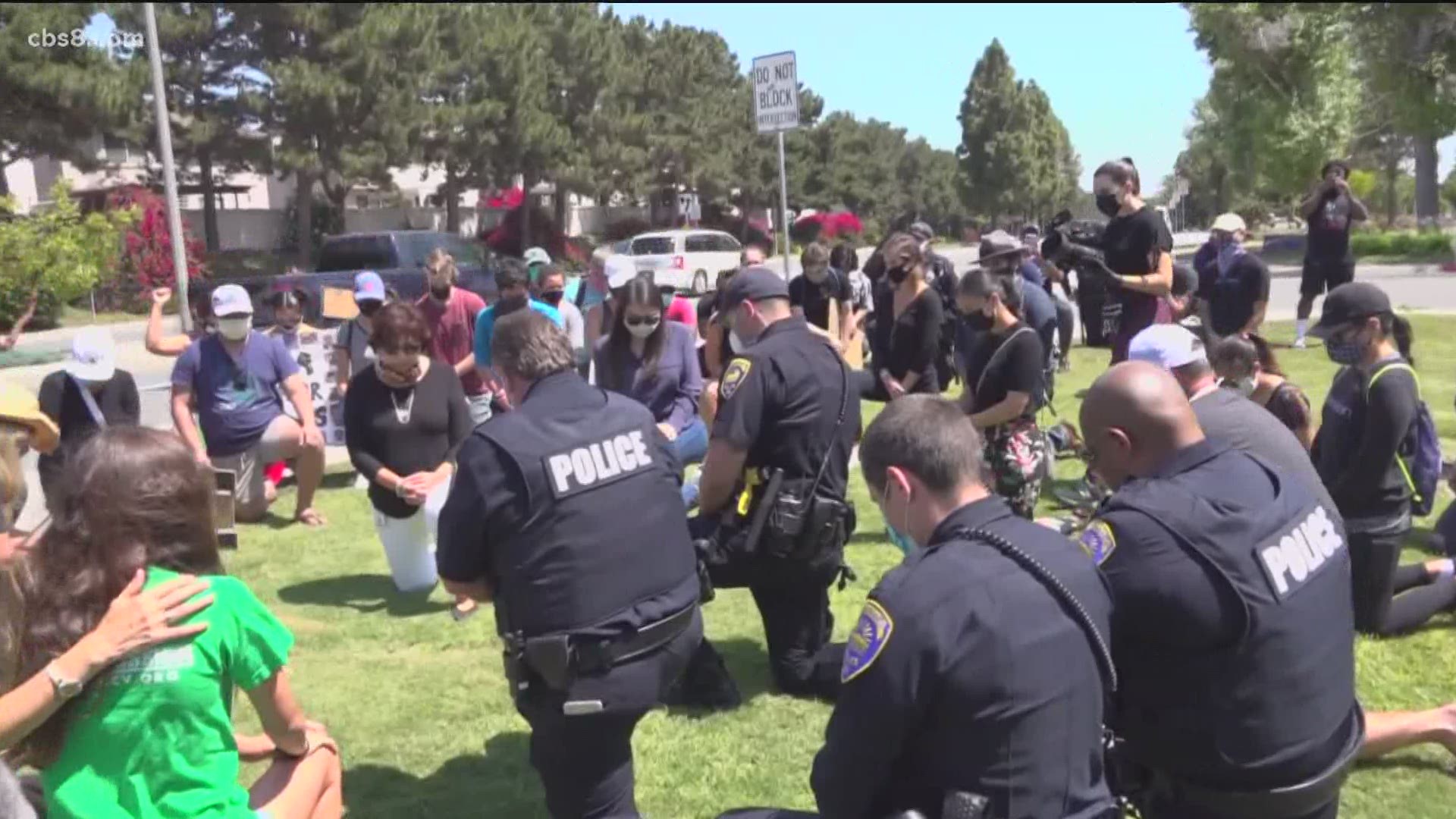SAN DIEGO COUNTY, Calif. — The San Diego County Police Chiefs and Sheriffs Association announced Thursday its adoption of a collective set of strategies designed to "de-escalate" confrontational law enforcement situations.
The policies unanimously adopted by the group on Wednesday are the culmination of a project that began last June with the creation of a committee tasked with exploring the hot-button issue, according to the regional police leadership group.
The panel consisted of representatives from all countywide municipal police agencies, the San Diego County District Attorney's Office and a local psychiatric emergency-response team.
“Our mission was to not only define best practices for de-escalation but to do so collectively to ensure the county is of one mind on the philosophy,” stated the president of the association, Chula Vista Police Chief Roxana Kennedy. “As part of this community, we understand the importance of violence prevention whenever possible and de-escalation techniques are the best way to get there.”
"Sometimes it's how we present, how we control our voice inflection, how we interact with them. How we don't react sometimes makes a huge difference," said Chief Kennedy.
"Sometimes there is no option for officers. Sometimes they're forced to make split-second decisions based upon the force that's coming at them," Kennedy said.
Guiding the development of the new program was "the overarching principle of reverence for human life in all investigative, enforcement and other interactions between law enforcement and members of the community," according to the association.
The plan calls on all police personnel to "use tactics and techniques to persuade (crime suspects) to voluntarily comply (in order to) mitigate the need to use increased physical tactics to resolve the situation safely."
"Some situations require an immediate response, while other situations may allow peace officers the opportunity to communicate with the individual, refine tactical plans and if necessary, call for additional resources," the agency stated.
Whenever "reasonable opportunity exists," according to the association's strategy, peace officers should consider the following concepts:
-- "Pre-engagement considerations," which involve "the process of gathering and assessing information prior to deploying the available personnel, tactics, equipment and other appropriate and obtainable resources," so as to create "discretionary time, reactionary distance, communication and barriers ... to enhance the probability of a peaceful outcome."
-- De-escalation, which hinges on the use of strategies and techniques "to gain voluntary compliance from an individual in order to gain or maintain control of an incident while reducing the need for physical coercion."
-- Disengagement, or "tactical withdraw," an enforcement method that can "be a viable option for individuals in crisis who pose no additional threats to others, or resistant offenders who may later be apprehended under safer conditions."
The association comprises the law enforcement leadership of the county and all local cities, as well as San Diego Harbor Police, the county Probation Department and the police departments of the San Diego Community College District, San Diego State University, San Diego Unified School District and the University of California San Diego.
On Wednesday, San Diego Mayor Kevin Faulconer said the San Diego Police Department was developing "a new and more robust de-escalation policy" as a result of feedback from residents who have questioned police tactics surrounding use of force.
Faulconer said such a policy was important to "give officers clear rules of the road on how to safely control a situation and resolve it with lower levels of force" and promised to release the new policy next week.
Doug Case sits on San Diego's Community Review Board on Police Practices, which recommended making de-escalation techniques mandatory for SDPD officers more than two years ago.
"It's important to make it a requirement so you can hold officers accountable. If you simply list it as something that is a philosophy, or something that is a tactic, or a guideline they can use, then you can't hold an officer accountable if they don't de-escalate," said Case.
"There's a difference between embracing it and making it an expectation," Case said.
District Attorney Summer Stephan's office released the following statement and comment on the protocol adopted by the regional agency:
"The San Diego County District Attorney's Office supports this important step forward which unites law enforcement's approach across the County with the goal of each department creating stronger policies to better eliminate bias and require de-escalation whenever possible.
In order for law enforcement to ultimately have a fundamental shift in its approach to policing, it's critical that we begin by agreeing on the guiding principles released by our region’s Police Chiefs and Sheriff.
The DA's Office has led the development, funding and implementation of a new de-escalation curriculum which is currently training officers in every police agency in the county, as well as the Sheriff's Department."
“This commitment to de-escalation respects life itself and advances a blueprint for transformation we set in motion two years ago based on community input.," said Stephan. “ When translated into action, de-escalation policies are the opposite of de-humanization and are an action-based response to calls for equality, fairness and dignity.”

